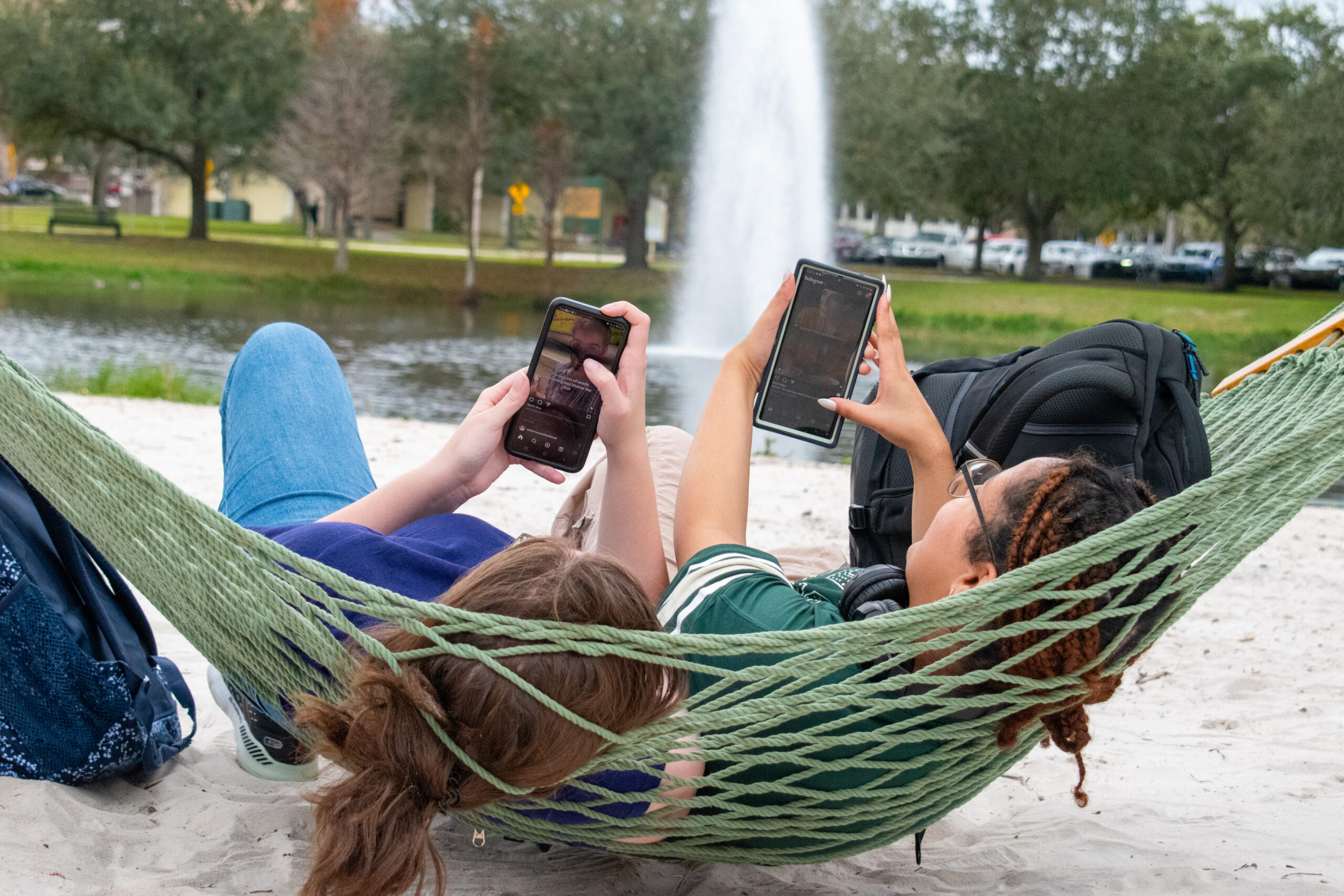OPINION: Attention USF students, don’t let social media decide who you vote for

It’s 2024, folks. Already, another election year is here before us.
If you choose to exercise your right of democracy and plan to participate in the voting process, how do you get your information? What sort of factors determine who you choose as your top pick for office?
No matter what side of the political spectrum you choose to lean, you should do your own research rather than getting all your information and advice from social media.
Around half of U.S. adults get their news from social media at least sometimes, according to a 2023 fact sheet by the Pew Research Center. Three in 10 U.S. adults say they regularly get news on Facebook – which is followed in use by YouTube, Instagram and TikTok.
“Look at news sources first and then if people are interested after that, they might want to go to social media,” said Joshua Scacco, director for USF’s Center for Sustainable Democracy and associate professor of political communication.
Related: Dear USF students, put your phones away
So, what are the harms of turning to social media alone in an effort to be informed?
Scacco mentioned that the social media posts often have very little commentary around news facts and instead just have opinion-based statements.
“‘Look out for those types of things, whereas facts very much can be empirically verified by multiple sources,” Scacco advised.
Rather than just grazing through social posts, get into the habit of visiting reputable sites.
The research you’re conducting should be thorough. It should be grounded in solid evidence, be backed up and cross-referenced by multiple reliable sources and not have personal or partisan feelings involved.
The problem?
We often do let our feelings get in the way, and this is perpetuated by turning to social media for answers.
We start to dislike candidates for superficial reasons that have nothing to do with whether or not they are capable of being a good leader.
We choose not to vote for somebody because maybe they look orange and have an unruly combover. Or maybe they look utterly confused all the time and keep unintelligibly slurring their words.
And maybe we choose to vote for somebody because one of our favorite TikTokers is voting for them.
Are you just conforming to the status quo that you see when habitually scrolling?
If so, make sure to get that in check by spending at least a few minutes a day researching who you want leading our nation. The further we deviate from a direct source, the more we fall prey to misinformation and hearsay.
Related: Join the fight against dishonest politicians, one Google search at a time
So how do you know if a news source is credible?
“The journalists who have produced the information for essentially bigger, more mainstream news outlets go through a training process by which they vet information to determine its credibility,” Scacco explained.
Also, one of the big differences between journalists and social media influencers in terms of credibility is that journalists admit when they present inaccurate information.
“The news outlets that get it wrong issue retractions and tell people. They are very upfront about it, whereas the influencer on social media probably won’t admit when they’ve gotten it wrong,” Scacco continued.
I understand the grips of social media are strong and that the people on there exist primarily to gain your trust and build up their own reputation. But they are not flawless. And they certainly do not hold a magic book full of all the answers on how to be a perfect voter.
Related: A USF student’s primary voting guide
For college students who just want to know the who, what, where, when and why of a story, Scacco recommends reading The Associated Press, The New York Times or Reuters.








